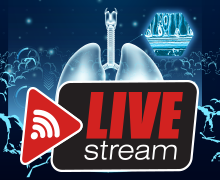Thursday, February 02, 2017
7:00 AM - 8:00 AM
Maui, Hawaii
Haleakala Ballroom
Grand Wailea Hotel
3850 Wailea Alanui Dr.
Wailea, Maui, HI 96753
Jeffrey M. Weinberg, MD (Interactive Professor)
Director, Division of Dermatology
Jamaica Hospital Medical Center
Associate Clinical Professor of Dermatology
Mount Sinai School of Medicine
New York, New York
Lawrence F. Eichenfield, MD
Professor of Dermatology and Pediatrics
Vice Chair, Department of Dermatology
University of California, San Diego, School of Medicine
Chief, Pediatric and Adolescent Dermatology
Rady Children’s Hospital and Health Center
San Diego, California
Howard Sofen, MD
Associate Clinical Professor of Medicine/Dermatology and Pediatrics
University of California, Los Angeles (UCLA)
David Geffen School of Medicine
Chief of Dermatology
Los Angeles County/Olive View-UCLA Medical Center
Los Angeles, California

This activity is jointly provided by Global Education Group and Integritas Communications.
This activity is supported by an educational grant from Genzyme, a Sanofi Company, and Regeneron Pharmaceuticals.
This symposium is independently organized and not an official part of the Skin Disease Education Foundation’s 41st Hawaii Dermatology Seminar. CME/CE credit is provided for this symposium.
Target Audience
The educational design of this activity addresses the needs of dermatologists and other healthcare professionals involved in the treatment of patients with atopic dermatitis
Educational Objectives
After completing this activity, the participant should be better able to:
- Discuss atopic dermatitis pathophysiology, focusing on clinically relevant disease mechanisms, risk factors, and novel therapeutic targets
- Comprehensively assess patients with atopic dermatitis to determine symptom severity, characterize potential phenotypes, identify comorbidities, and document treatment responses
- Describe the clinical profiles of current and emerging biologic therapies for moderate-to-severe atopic dermatitis
- Individualize therapy for moderate-to-severe atopic dermatitis to prevent outbreaks, maximize health-related quality of life, manage comorbidities, and minimize treatment-related adverse effects
- Communicate with patients and, when necessary, caregivers to improve their understanding of atopic dermatitis and secondary complications, while facilitating shared decision-making
Statement of Need
Atopic dermatitis is a chronic inflammatory condition with manifestations in the skin and other organ systems throughout the body.1 Increasing in prevalence over the last 2 decades, the disease places tremendous burdens on adult, adolescent, and pediatric patients, as well as family members and caregivers.1,2 A better understanding of disease pathophysiology and effects on patient health and quality of life highlight the need for prompt diagnosis and proactive management.3,4 Moreover, research into the mechanisms underlying atopic dermatitis pathogenesis and progression supports the development of new approaches to disease characterization, ongoing patient monitoring, and treatment.5,6 During this Evidence-Based Best Practices program, expert faculty will discuss clinically relevant disease pathophysiology; comprehensive patient evaluations; the efficacy and safety of current therapies for moderate-to-severe disease; and the latest evidence for emerging biologic agents. With the overall goal of improving outcomes for patients with active atopic dermatitis, the program will integrate clinical data and professional experience into actionable recommendations that can be used to individualize care and improve patient-clinician communication.
- Nutten S. Atopic dermatitis: global epidemiology and risk factors. Ann Nutr Metab. 2015:66(suppl 1):8-16.
- Drucker AM, et al. The burden of atopic dermatitis: summary of a report for the National Eczema Association. J Invest Dermatol. 2016 Sep 8. [Epub ahead of print].
- Eichenfield LF, et al. Guidelines of care for the management of atopic dermatitis: section 1. Diagnosis and assessment of atopic dermatitis. J Am Acad Dermatol. 2014;70(2):338-351.
- Sidbury R, et al. Guidelines of care for the management of atopic dermatitis: section 3. Management and treatment with phototherapy and systemic agents. J Am Acad Dermatol. 2014;71(2): 327-349.
- Ungar B, et al. An integrated model of atopic dermatitis biomarkers highlights the systemic nature of the disease. J Invest Dermatol. 2016 Nov 4. [Epub ahead of print].
- Simpson EL, et al. Two phase 3 trials of dupilumab versus placebo in atopic dermatitis. N Engl J Med. 2016 Sep 30. [Epub ahead of print].
Physician Accreditation Statement
This activity has been planned and implemented in accordance with the accreditation requirements and policies of the Accreditation Council for Continuing Medical Education (ACCME) through the joint providership of Global Education Group (Global) and Integritas Communications. Global is accredited by the ACCME to provide continuing medical education for physicians.
* This CME/CE activity complies with all requirements of the federal Physician Payment Sunshine Act. If a reportable event is associated with this activity, the accredited provider managing the program will provide the appropriate physician data to the Open Payments database.
Physician Credit Designation
Global Education Group designates this enduring activity for a maximum of 1.0 AMA PRA Category 1 Credit™. Physicians should claim only the credit commensurate with the extent of their participation in the activity.
Disclosure of Conflicts of Interest
Global Education Group (Global) requires instructors, planners, managers and other individuals and their spouse/life partner who are in a position to control the content of this activity to disclose any real or apparent conflict of interest they may have as related to the content of this activity. All identified conflicts of interest are thoroughly vetted by Global for fair balance, scientific objectivity of studies mentioned in the materials or used as the basis for content, and appropriateness of patient care recommendations.
Americans with Disabilities Act
Event staff will be glad to assist you with any special needs (ie, physical, dietary, etc). Please contact Michael Remsen prior to the live event at (646) 350-0906
For information about the accreditation of this program, please contact Global at 646-350-0906 or cme@globaleducationgroup.com.
Register Now

15
2024
Tackling Chronic Inflammatory Airway Diseases
A Unified Picture of Disease Processes and Targeted Management
| Time: | 6:30 PM-8:00 PM CT |
| Venue: | Live Stream |
| Location: | Live Stream |
| Faculty: | Joseph K. Han, MD, FARS, FAAAAI, FAAOA; Amber U. Luong, MD, PhD, FACS; Anju T. Peters, MD, MSCI |

15
2024
Tackling Chronic Inflammatory Airway Diseases
A Unified Picture of Disease Processes and Targeted Management
| Time: | 6:00 PM-8:00 PM CT |
| Venue: | Hyatt Regency Chicago, Grand GH |
| Location: | Chicago, IL |
| Faculty: | Joseph K. Han, MD, FARS, FAAAAI, FAAOA; Amber U. Luong, MD, PhD, FACS; Anju T. Peters, MD, MSCI |

20
2024
An Expert Panel on Severe Asthma
From the Epithelium to Better Patient Outcomes
| Time: | 6:30 PM-8:00 PM PT |
| Venue: | Live Stream |
| Location: | Live Stream |
| Faculty: | Geoffrey Chupp, MD; Njira Lucia Lugogo, MD, MS; Michael E. Wechsler, MD, MMSc |

20
2024
An Expert Panel on Severe Asthma
From the Epithelium to Better Patient Outcomes
| Time: | 6:30 PM-8:00 PM PT |
| Venue: | Hilton Bayfront San Diego - Indigo Ballroom CGDH |
| Location: | Indigo Ballroom CGDH |
| Faculty: | Njira Lucia Lugogo, MD, MS; Michael E. Wechsler, MD, MMSc; Geoffrey Chupp, MD |






